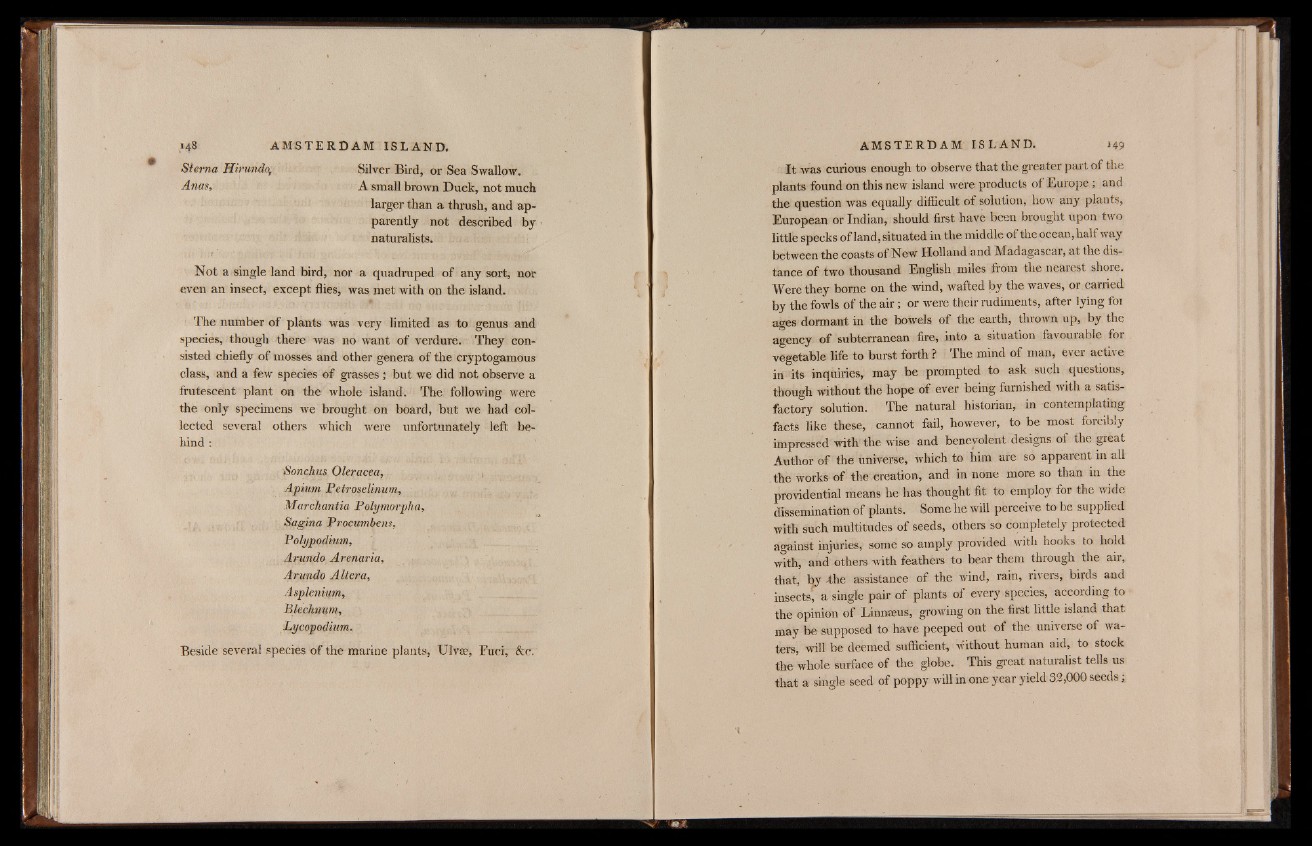
Sterna Hirundor Silver Bird, or Sea Swallow.
Anas, A small brown Duck, not much
larger than a thrush, and apparently
not described by
naturalists.
Not a single land bird, nor a quadruped of any sort, nor
even an insect, except flies, was met with on the island.
The number of plants was very limited as to genus and
species, though there was no want of verdure. They consisted
chiefly of mosses and other genera of the cryptogamous
class, and a few species of grasses; but we did not observe a
frutescent plant on the whole island. The following were
the only specimens we brought on board, but we had collected
several others which were unfortunately left behind
:
Sonchus Olerácea,
Apium Petroselinum,
Marchantía Poly morpha,
Sagina Pracumbens,
Polypodium,
Arundo Arenaria,
Arundo Altera,
Asplenium,
Blechnum,
Lycopodium.
Beside several species of the marine plants, Ulvae, Fuci, &c.
I t was curious enough to observe that the greater part of the
plants found on this new island were products of Europe; and
the question was equally difficult of solution, how any plants,
European or Indian, should first have been brought upon two
little specks of land, situated in the middle of the ocean, half way
between the coasts of New Holland a nd Madagascar, at the distance
of two thousand English miles from the nearest shore.
Were they borne on the wind, wafted by the waves, or carried
by the fowls of the a ir; or were their rudiments, after lying foi
ages dormant in the bowels of the earth, thrown up, by the
agency of subterranean fire, into a situation favourable for
vegetable life to burst forth ? The mind of man, ever active
in its inquiries, may be prompted to ask such questions,
though without the hope of ever being furnished with a satisfactory
solution. The natural historian, in contemplating
facts like these, cannot fail, however, to be most forcibly
impressed with the wise and benevolent designs of the great
Author of the universe, which to him are so apparent in all
the works of the creation, and in none more so than in the
providential means he has thought fit to employ for the wide
dissemination of plants. Some he will perceive to be supplied
with such multitudes of seeds, others so completely protected
against injuries, some so amply provided with hooks to hold
with, and others with feathers to bear them through the air,
that, by 4he assistance of the wind, rain, rivers, biids and
insects, a single pair of plants of every species, accoiding to
the opinion of Linnaeus, growing on the first little island that
may be supposed to have peeped out of the universe of waters,
will be deemed sufficient, without human aid, to stock
the whole surface of the globe. This great naturalist tells us
that a single seed of poppy will in one year yield 32,000 seeds;